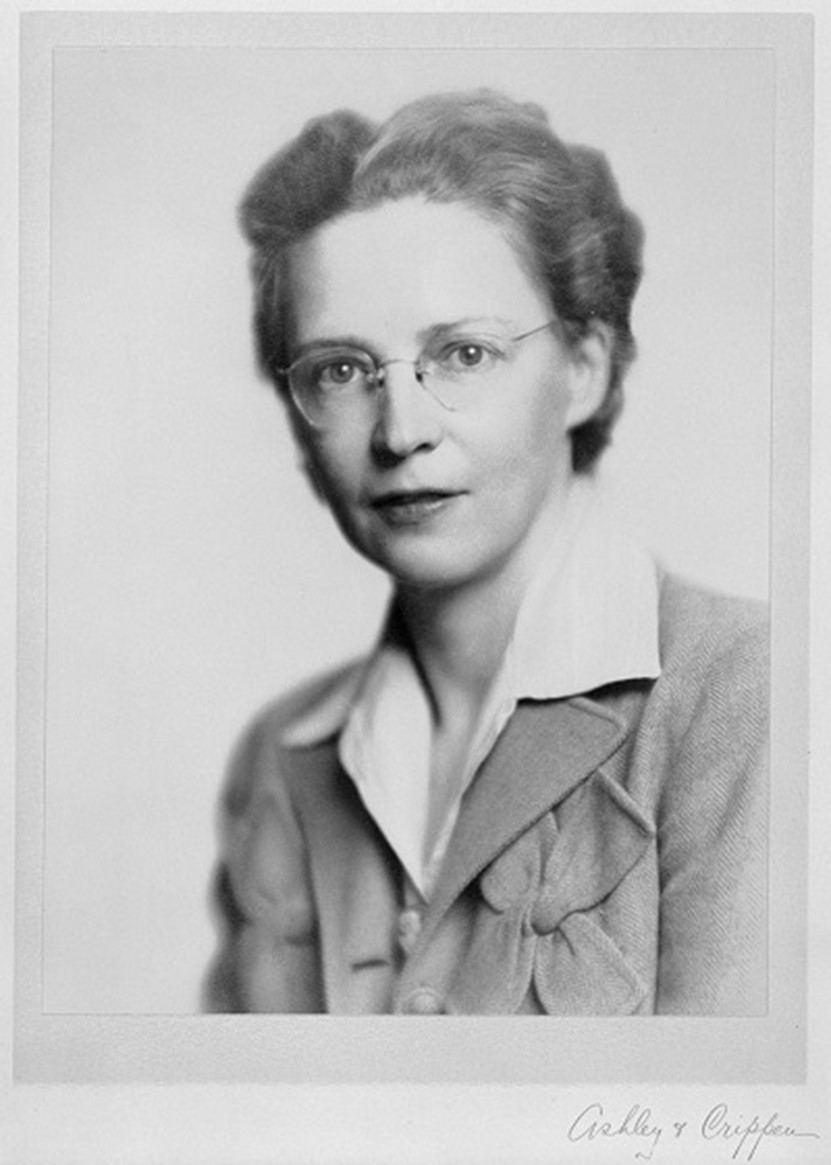
For the week of March 24, 2025.
On March 27, 1905, Elizabeth Muriel Gregory (Elsie) MacGill was born in Vancouver, British Columbia. She made significant contributions to the field of aeronautical engineering, and to the recognition and promotion of women’s equality in Canada.
MacGill was the daughter of Helen Gregory MacGill, the first female judge in British Columbia, and James Henry MacGill, a well-known lawyer. In 1927, Elsie MacGill became the first woman to graduate from an electrical engineering program in Canada at the University of Toronto. She was also the first woman in North America to earn a Master’s degree in aeronautical engineering in 1929 at the University of Michigan, despite contracting polio. Once recovered, she continued her studies at the Massachusetts Institute of Technology.
In 1934, MacGill began working as an assistant aeronautical engineer at Fairchild Aircraft Limited in Longueuil, Quebec. She was then hired as chief aeronautical engineer at Canadian Car & Foundry (Can-Car) in Fort William, Ontario (now Thunder Bay) in 1938. There, she became the first woman to design an aircraft: the Maple Leaf Trainer II.
At Can-Car during the Second World War (1939–1945), MacGill oversaw the engineering of more than 1,400 Hawker Hurricane aircraft—one of the most important Allied fighter planes. MacGill introduced mass-production techniques, which significantly increased the number of planes built. She also made innovative changes to the design that allowed it to be flown in winter conditions for the first time, earning her the nickname “Queen of the Hurricanes.” In 1941 she won the Gzowski Medal from the Engineering Institute of Canada for her publication, “Factors Affecting the Mass Production of Aeroplanes.” She left Can-Car in 1943. Shortly after, she married Bill Soulsby, the former plant manager, who had left the company at the same time.
MacGill worked as a private consultant in Toronto for decades, becoming a leading figure in the aeronautics industry. In 1946 she became the first woman technical advisor to the International Civil Aviation Organization. Throughout her career, she helped with projects such as the drafting of the international air worthiness regulations for commercial aircraft, served on aeronautical committees of the National Research Council, and was the first female member of several engineering organizations.
MacGill was also an advocate for the advancement of women. She was active in several organizations, including as provincial and national president of the Canadian Federation of Business and Professional Women. From 1967 to 1970, she served as a commissioner of the Royal Commission on the Status of Women in Canada. In this capacity, she called for equality in the workplace, access to birth control, the decriminalization of abortion, and increased financial independence for women.
MacGill remained active in several women’s organization in the years that followed and lobbied for the adoption of the Royal Commission’s recommendations. In 1971, she was named to the Order of Canada. She also received honorary doctorates from the universities of Toronto, Windsor, Queen’s, and York. After a life of remarkable contributions to aeronautical engineering and women’s equality, Elsie MacGill died in Cambridge, Massachusetts on November 4, 1980.
Elizabeth Muriel Gregory “Elsie” MacGill and Helen Gregory MacGill were designated national historic persons in 2007 and 1998, respectively. Canadian Car & Foundry was designated a national historic site in 2010. The Historic Sites and Monuments Board of Canada advises the Government of Canada on the commemoration of national historic persons—individuals who have made unique and enduring contributions to the history of Canada, and national historic events, which evoke significant moments, episodes, movements, or experiences in the history of Canada.
The National Program of Historical Commemoration relies on the participation of Canadians in the identification of places, persons and events of national historic significance. Any member of the public can submit a subject to the Historic Sites and Monuments Board of Canada. Learn how to participate in this process.